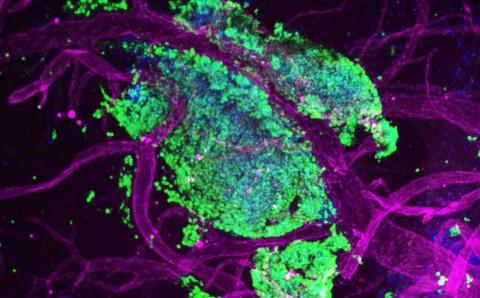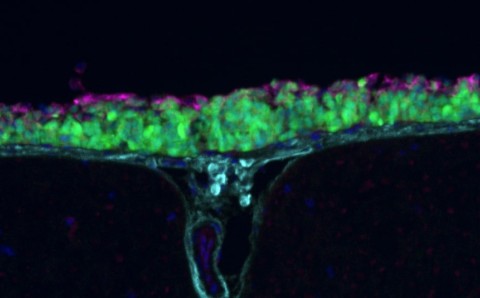Our Research Research News
Latest Research News

Research
Feb. 18, 2026
Researchers connect the dots between cause-effect events in Alzheimer’s disease





Research
Jan. 16, 2026
Fruit fly pigmentation guides discovery of genes that control brain dopamine and sleep

Research
Jan. 14, 2026
Researchers Identify How a “Quality Control” Protein Causes Neurodegenerative Disease

Research
Aug. 26, 2025
New study reveals that prolonged exposure to food smells can suppress appetites

Research
Aug. 21, 2025
Computational approach meets biology to connect neural progenitor cells with human disorders




Research
Jul. 01, 2025
New research points out a promising strategy for treating metastatic medulloblastoma






